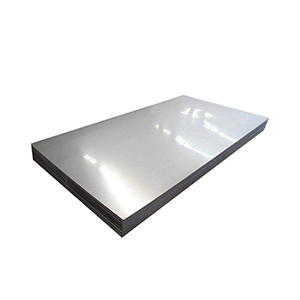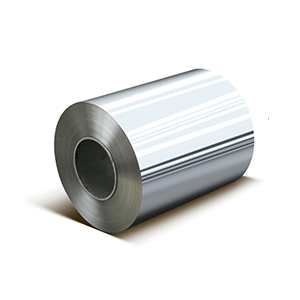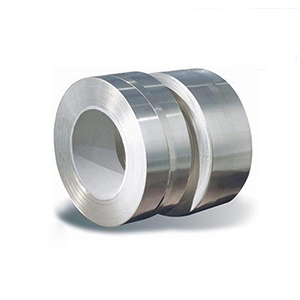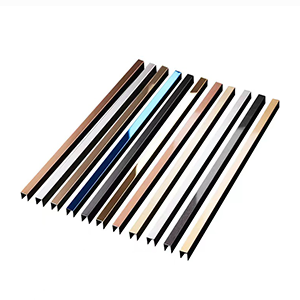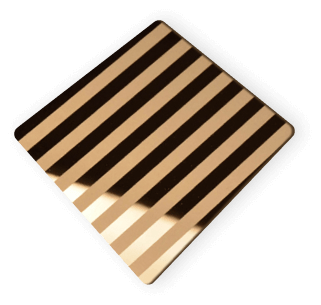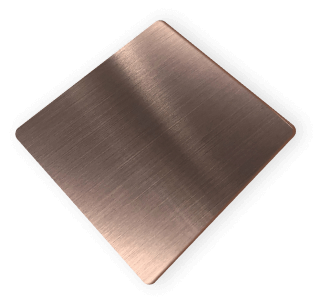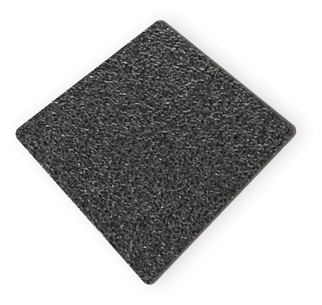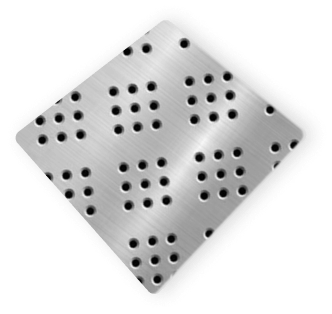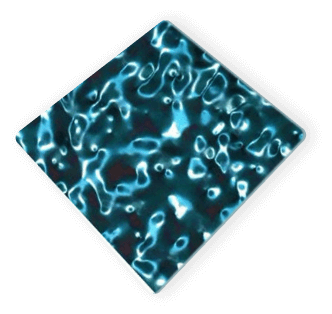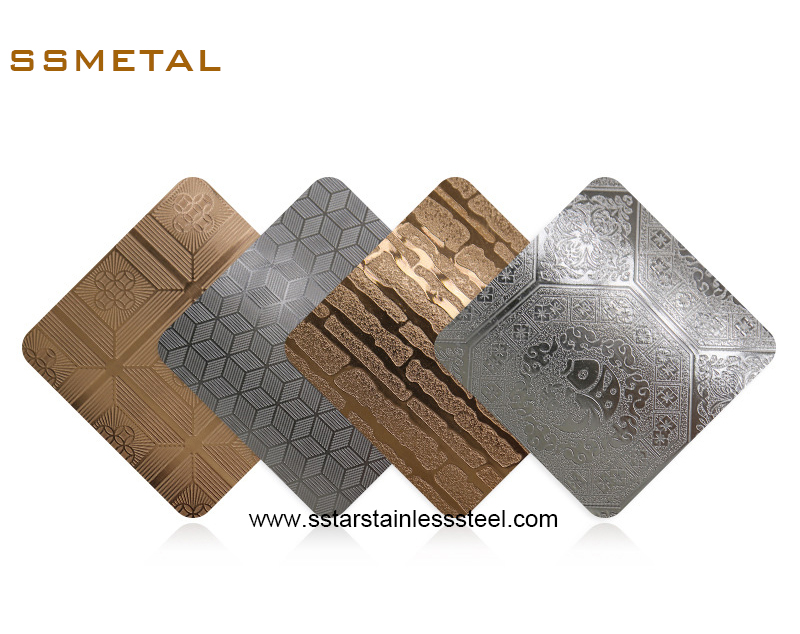The stainless steel coil is one of the important materials. According to the production process, it can be divided into two categories: cold-rolled stainless steel coils and hot-rolled stainless steel coils, and according to different materials, it can be divided into austenite, ferrite, martensite, and duplex stainless steel coils. Like other types of stainless steel, stainless steel coils have strong corrosion and rust resistance, and excellent quality makes them important industrial raw materials and building materials.
With the continuous progress of science and technology, many different treatment processes have appeared on the surface of stainless steel coil. The surface of stainless steel has different gloss, color, patterns, etc. through different processing methods to improve the appearance of stainless steel and achieve aesthetic effects.
Stainless Steel Surface Processing
The surface processing of stainless steel is usually divided into two categories: one is the surface obtained by stainless steel production plants using different production processes, which is often called rolling surface processing, the other is the surface processing of materials to change the surface level or properties, which is called stainless steel surface depth processing.

Rolling surface processing
Stainless steel coils produced by steel rolling mills generally go through hot rolling, cold rolling, annealing, pickling, finishing and other processes. Because the surface of stainless steel cold-rolled coils occupies a special position in use, their surface processing is divided into different surface machining types (or grades) according to different technological methods. Stainless steel coil materials, especially cold-rolled steel sheets and steel strips, have a variety of surface processing types, such as common 2B, No.1 and BA finish surfaces.
Deep processing of stainless steel surface
For some special purposes, the surface properties of stainless steel must be changed, so the stainless steel surface needs to be deeply processed through different processes. Common stainless steel surface deep processing processes include brushing, mirror, sandblasting, titanium plating, etching, embossing, etc.
1. Brushed (frosted):
There are many kinds of brushed stainless steel, with a variety of silk shapes, including hair lines, snowflake sands, satin patterns, cross lines, etc. This surface treatment gives people a good feel, delicate luster, strong wear resistance and other characteristics.
2. Mirror:
Mirror stainless steel, also known as 8K mirror finish stainless steel, just like a mirror, the stainless steel surface is treated by polishing, and the mirror effect can be divided into general grinding, fine grinding, ultra-precision grinding, etc.
3. Sandblasting:
Sandblasting stainless steel makes the surface of stainless steel present a sand surface. The density of the sand surface is also divided into fine sand, medium sand, large sand, etc. The density can also be produced in various ways, forming a unique decorative effect.

4. Titanium plating:
The titanium plating process generally includes water plating and vacuum plating, which is an ionic film layer that forms titanium/zirconium compounds on the surface of stainless steel. The ion film layer can not fade for many years in an outdoor environment. Titanium plating can change the appearance of stainless steel in a variety of colors. It can be plated with sapphire blue, black, coffee, red, seven colors, gold, bronze, rose gold, champagne gold, emerald green, etc.
5. Etching:
Etched stainless steel takes an 8K mirror sheet or brushed sheet as the base plate. After etching, the surface is deeply processed. It can be treated with partial hairline, partial titanium and other complex processes to achieve the effect of light and dark patterns and gorgeous colors.
6. Embossing:
Embossed stainless steel is extruded on stainless steel plates through mechanical equipment and precision pattern molds, so that concave and convex patterns appear on the surface of the plate, such as the common checker plates, diamond plates, etc. There is also a very popular water rippled stainless steel plate recently, which is also a kind of embossed plate.

Applications
With the continuous development of the national economy, the application field of stainless steel coils is becoming more and more extensive, and the market prospect is very optimistic by industry insiders.
From the analysis of the stainless steel coils application industry, the automotive industry is the fastest-growing application field of stainless steel coil at present. In the past decade, the consumption of stainless steel coils for automobiles has increased from an average of 10 kg to 30 kg in Japan and more than 40 kg in the United States. Stainless steel coils are also widely used in public transportation vehicles such as buses, subways and high-speed railways. China’s electrical appliance industry is a potential large market for the application of stainless steel coils. In addition, the demand for stainless steel coils in the water industry, construction and structure industry, environmental protection industry and industrial facilities will also rise year by year.

I. Vehicle/Automotive Industry
This is the fastest-growing application field of stainless steel coil. Using high-strength stainless steel coil to make the body structure can greatly reduce the weight of the vehicle and enhance the strength of the car body structure. Using stainless steel coil to make the panel and decorative parts of the vehicle can reduce maintenance costs. In addition, stainless steel coil is also used in the exhaust system of automobiles because of its resistance to chloride ion corrosion and heat resistance. Nowadays, Japan, the United States, Sweden and other countries have made extensive use of stainless steel coil vehicles. Japan has been promoting it since the 1980s, and its stainless steel train vehicles have reached 60%. The car industry is the focus of the development of stainless steel coil applications.

II. Aquatic industry
The pollution of water in its storage and transportation has attracted great attention. A large number of practices have proved that stainless steel coil is the best material for water preparation, storage, transportation, purification, regeneration, seawater desalination and other water industry. Its advantages are corrosion resistance, earthquake resistance, water saving, hygiene (rust-free and no patina), light weight (one-third reduction), less maintenance, long service life (40 years) low life cycle cost (LCC), and recyclable green environmental protection material. According to reports, the winding of stainless steel pipes in Tokyo, Japan, has reached 76%, and the leakage rate of pipelines has decreased from 14.7% to 7.5% at present. After the major earthquake in Osaka, Japan, the stainless steel coil water storage tank was intact. Recently, Japan has developed bellows joints, reducing the construction cost of stainless steel water pipelines by 20%, the total cost by 3%, and the maintenance cost by 3/4.

III. Construction industry
It is one of the earliest applications of stainless steel coils. In terms of architectural decoration, at present, stainless steel coil is mainly used in the outer walls, interior and exterior columns of high-rise buildings, handrails, floors, elevator wall panels, doors and windows, curtain walls and other internal and external decorations and components. The stainless steel coil, which has been surface treated, colored and coated, solves the problem of easy handprints after touching, and further expands the application scope of stainless steel coil. Japan has developed a variety of stainless steel coil roofing materials, such as high corrosion resistance, medium ferrite and various coating plates. The super-clean brush surface stainless steel coil developed in Sweden and the UGITOP panel developed by Ugine in France provide new options for the construction industry.

IV. Home Appliances
In the home appliance industry, the large amount of stainless steel coils is the inner cylinder of the automatic washing machine, the inner tank of the water heater, the inner shell of the microwave oven, and the inner lining of the refrigerator, and most of them use ferrite stainless steel. The proportion of stainless steel for household appliances in Western Europe is relatively large, and Asia is generally used less except for Japan, which is close to the European level.
In 1999, the consumption of ferrite and martensitic stainless steel in Japan’s household appliance industry reached 28%, and austensite accounted for 12%. Microwave ovens, refrigerators, air conditioners, TVs, etc. produced in China have become competitive export products in the world, and the domestic household appliance industry is a potential market for stainless steel applications. It is estimated that in the next 5-10 years, the demand for stainless steel in China’s electrical industry will reach 100,000-150,000 tons.
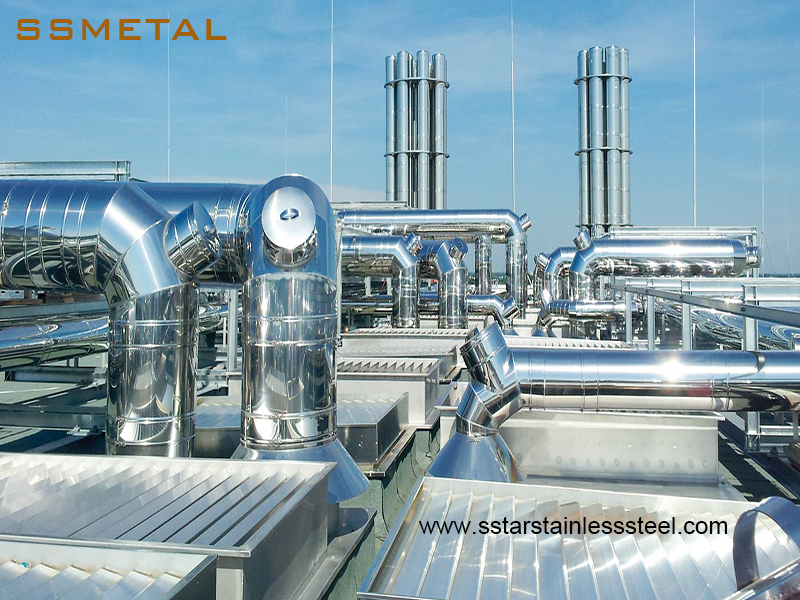
V. Environmental Protection Industry
Industrial waste gas, garbage and sewage treatment plants need to be made of stainless steel coils. In the process of flue gas desulfurization, in order to resist the corrosion of sulfur dioxide, chloride ions and iron ions, duplex stainless steel coils and high-brand austenitic stainless steel coils are needed in absorption towers, coolers, pumps, valves, flues, etc. Waste incinerators, wastewater treatment and other facilities need to be made of high-performance stainless steel coil materials.

VI. Industrial facilities
The proportion of stainless steel coils used in industrial facilities in developed countries can generally reach 15%-20%, and the proportion of domestic applications is still very small. On the one hand, due to the introduction of a complete set of industrial equipment, stainless steel coil materials are not counted, and on the other hand, domestic materials have not been adopted. Stainless steel coils are needed in the fields of chemicals, petrochemicals, chemical fibers, papermaking, food, medicine, energy (nuclear power, thermal power, fuel cells) and other fields. With the improvement of the quality of domestic stainless steel coil products and the development of special brand products, the application of stainless steel coil in industrial facilities will increase year by year.






